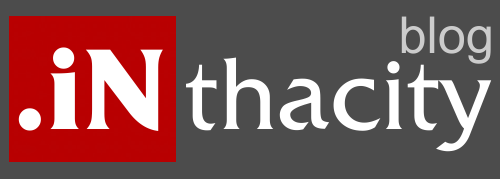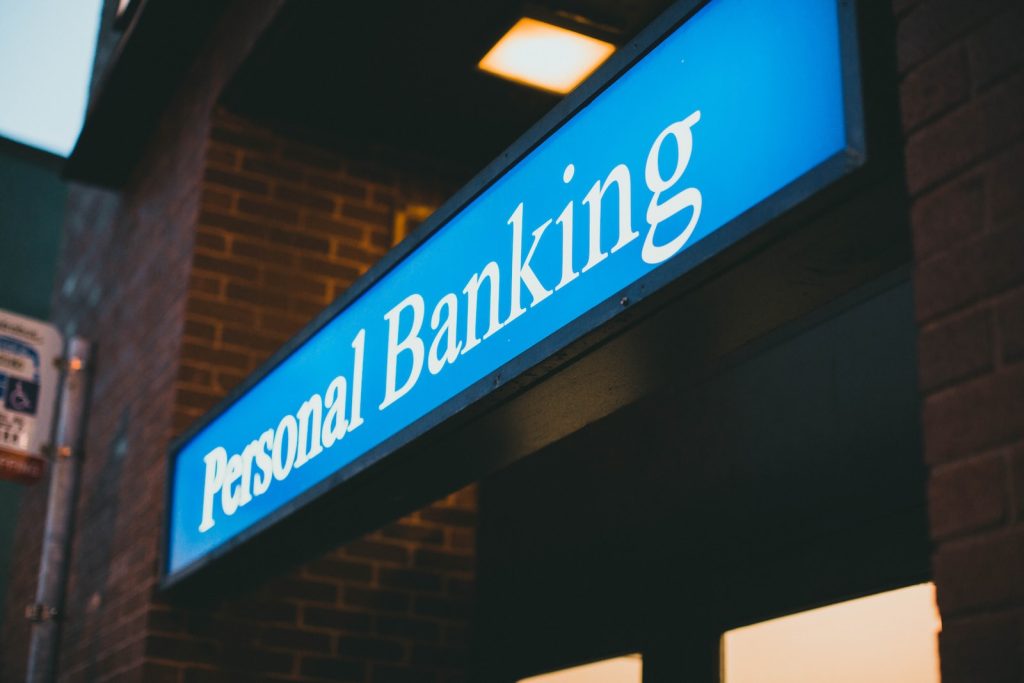Hi there. As the father of 3 I can say that banking has never been easy; between juggling work, homework, activities, groceries, laundry, mowing the lawn and getting more diapers, banking can sometimes be the straw that broke the camel's back. Why does it have to be soooo complicated. Well, it doesn't have to be and some of the big banks out there have gotten the message. Many have evolved into parent-friendly operations with easy, user-friendly online, services, 24/7 telephone customer's services, late evening and even Saturday and Sunday hours (thank you TD). So, without further a due here are my favorite banks in America for busy parents ranked with essential features.
For more information I invite to do your research, and keep up to date by reading the latest financial news at sites like CNN Business and Finance News iNthacity.
Best Bank Accounts for Busy Families
1 - TD Bank (My absolute favorite)
TD Bank is one of the most popular banks for busy parents, and for good reason. With 24/7 customer service, Saturday and Sunday hours at most locations, and a network of more than 1,200 branches throughout the country, TD Bank makes it easy for parents to manage their banking needs at any time. The Convenience Checking account is another feature that makes TD Bank appealing to busy parents. It requires only $100 to open and doesn't charge a monthly service fee, making it a budget-friendly option. Additionally, the bank offers digital tools such as Zelle, remote check deposit, and online bill payment, making it easy to manage accounts on the go. TD Bank also offers a wide range of additional services including mortgages, personal loans, investment services, insurance and wealth management services. This range of services offers busy parents a one-stop-shop for their financial needs.
Known for/Known as:
- 24/7 customer service
- Saturday and Sunday hours at most locations
- Large branches, everywhere, 1,200 locations
- Convenience Checking account requires only $100 kept in the account...no monthly service fee
- Excellent digital tools include Zelle, remote check deposit and online bill payment
2 - Chase Bank: Credit Card, Mortgage, Banking, Auto
As the largest bank in the U.S, Chase offers a wide range of services, including credit cards, mortgages, banking, and auto loans. With over 5,000 branches throughout the country, 24/7 customer service, and top-notch digital tools like Zelle, it's no surprise that Chase has received Readers’ Choice award for the best big bank for busy families. Chase also offers home equity lines of credit, personal lines of credit, and small business banking services. These services give busy parents more options to manage their finances and plan for the future. Additionally, the bank's strong digital tools and branch network make it easy for busy parents to conduct transactions and manage their accounts at any time.
Known for/Known as:
- Largest bank in the U.S.
- Many many branches 5,000 branches in the country
- 24/7 customer service (24/7 phone service) and top-notch digital tools
- Readers’ Choice award for the best big bank
- Incredible digital tools: send and receive money via Chase Quickpay with Zelle
3 - Capital One: Credit Cards, Bank, and Loans - Personal and Business
-
Capital One is known for its Capital One accounts (checking, savings, and CDs), its 360 Checking Account that doesn't require a minimum to open and doesn't charge maintenance fees and offers higher yield than the typical big bank and ample ATM access. This makes it a great option for busy parents who want to manage their accounts without worrying about fees and minimum balance requirements. Capital One also offers a wide range of additional services including credit card, personal loan, investment services, and small business banking services. The bank's mobile app also offers a wide range of features that allow busy parents to manage their accounts, pay bills, and perform other transactions on the go.
Known for/Known as:
- Capital One accounts (checking, savings and CDs)
- 360 Checking Account
- Desn’t require a minimum to open the account
- Doesn’t charge a maintenance fee,
- Pays a higher yield than the typical big bank and
- Offers customers ample ATM access
4 - Citibank: Online Banking, Mortgages, Personal Loans, Investing
Citibank, the fourth-largest bank in the U.S. based on assets, offers a wide range of services, including online banking, mortgages, personal loans, and investing. With 24/7 customer service, no minimum opening deposit required for Citi Accelerate High Yield Savings account and standout features like a high-rated mobile app, ample branch access, and 24/7 customer service, it's a bank that busy parents will find convenient. Additionally, Citibank offers wealth management services, insurance, and retirement planning. These services provide a wide range of options for busy parents to plan for their financial future. The bank's strong digital tools and mobile app also make it easy for busy parents to manage their accounts and conduct transactions on the go.
Known for/Known as:
- Fourth-largest bank in the U.S. based on assets
- 24/7 customer service
- No minimum opening deposit required to open the Citi Accelerate High Yield Savings
- Standout features include a high-rated mobile app, ample branch access and 24/7 customer service
- Great mobile app with strong ratings from iOS and Android users
- Pay friends with Zelle - Lock or unlock a card with Zelle
- Branch access: There are around 700 Citibank branches in the U.S. and more than 1,800 overseas
5 - PNC Bank: Online Banking, Mortgages, Personal Loans, Investing
PNC Bank offers a variety of features that make it appealing to busy parents, such as awesome digital tools, high-yield savings accounts, and optional fees. With digital tools like Zelle, Find ATMs with the app, APY savings account doesn’t have a minimum deposit requirement, available to residents of 31 states, checking account that also doesn’t charge a monthly fee, and Financial health alerts, such as warnings about "danger days" or times you're likely to overspend, PNC is a bank that provides a complete package for busy parents. PNC Bank also offers mortgage, personal loan, investment services, and wealth management services. These services provide busy parents with a wide range of options to manage their finances and plan for their future. The bank's strong digital tools and mobile app also make it easy for busy parents to manage their accounts and conduct transactions on the go.
Known for/Known as:
- Awesome digital tools, high-yield savings account and optional fees
- Pay people with Zelle and find ATMs with the app
- APY savings account doesn’t have a minimum deposit requirement
- Available to residents of 31 states
- Checking account that also doesn’t charge a monthly fee
- Neat digital tools: Financial health alerts, include warnings about “danger days,” or times you're likely to overspend
Frequently Asked Banking Questions
Q: Do these banks have mobile banking apps?
A: Yes, all of the banks listed above have mobile banking apps that allow customers to manage their accounts and perform transactions on their mobile devices.
Q: Are there account minimums to open an account with these banks?
A: Most of the banks listed above have account options with no minimum deposit requirements.
Q: Do these banks offer credit cards as well?
A: Yes, some of the banks listed above, such as Chase and Capital One, offer credit cards in addition to other banking services. However, not all of the banks offer credit cards, so it's important to check with the specific bank if that is a service you're looking for.
Q: Are there ATM fee’s with these banks?
A: Some of the banks listed above, such as Capital One, offer ample ATM access without fees. Other banks may have fees for using ATMs outside of their network, so it's important to check with the specific bank for their ATM policies.
Q: Do these banks offer online banking services?
A: Yes, all of the banks listed above offer online banking services that allow customers to manage their accounts, check balances, pay bills, and perform other transactions through their website.
Q: Are there any fees for closing an account with these banks?
A: It depends on the bank and the specific account you have. It's important to check with the specific bank for their account closing policies and any potential fees.
Q: Are there any other services that these banks offer, such as loans and investments?
A: Some of the banks listed above, such as Citibank and Chase, offer additional services such as loans and investments. However, not all of the banks listed offer these services, so it's important to check with the specific bank for the services they offer.
Q: What are some of the key features to look for in a bank as a busy parent?
A: As a busy parent, some of the key features to look for in a bank include 24/7 customer service, online and mobile banking capabilities, ATM access and branch locations, and low fees or no fees on checking and savings accounts. Additionally, it's important to consider whether the bank offers additional services such as mortgages, personal loans, and investment options, as well as wealth management services that can help with financial planning for the future.
Q: Can I open a joint account with my partner or spouse?
A: Yes, most banks offer the option to open a joint account with a partner or spouse. This allows both parties to deposit and withdraw money, write checks, and manage the account together. It can be a great way to manage finances as a family, but it's important to have a clear understanding of the responsibilities and agreements between account holders.
Q: What are some common fees associated with bank accounts?
A: Some common fees associated with bank accounts include monthly maintenance fees, ATM fees, overdraft fees, and insufficient funds fees. These fees can vary depending on the bank and the type of account you have. It's important to review the fee schedule for an account before opening it, and to look for accounts that waive or reduce these fees.
Q: How do I know if a bank is FDIC-insured?
A: The Federal Deposit Insurance Corporation (FDIC) is an independent agency of the U.S. government that insures deposits in banks and thrift institutions for at least $250,000 per depositor. Most banks in the United States are FDIC-insured, but it's important to check with the bank to confirm. You can also check the FDIC's BankFind tool to verify that a bank is FDIC-insured.
Q: Can I open a bank account for my child?
A: Yes, most banks offer the option to open a bank account for a child. These accounts may have different requirements, such as a minimum age for the child, and may have lower deposit and withdrawal limits than adult accounts. Some banks also offer special accounts for children such as youth account, that come with educational resources on financial management and budgeting, this will be a great start for your child's financial education.
Q: Are there any specific services or tools that can help me manage my finances better?
A: Some banks offer services and tools such as budgeting tools, savings calculators, financial planning resources, and even financial advisors, to help customers better manage their finances. Additionally, many banks offer digital tools such as mobile apps, online banking, and person-to-person payment services like Zelle that make banking and financial management more convenient. You may also consider signing up for mobile alerts, which can remind you of upcoming bills and other financial obligations, as well as notify you of unusual account activity.
Q: How do I choose the best savings account for my family?
A: When choosing a savings account for your family, it's important to consider factors such as the annual percentage yield (APY), account fees, and minimum deposit requirements. It can also be beneficial to look for accounts that offer additional features such as automatic savings plans, which can help you reach your savings goals more quickly.
Q: Are there any banking options for people with poor credit?
A: Some banks may offer second chance checking accounts for individuals with poor credit, or limited credit history. These accounts may come with additional fees or requirements, and may not offer all of the features and services of a traditional checking account. Additionally, you can look for credit unions, as they tend to be more flexible with their lending and deposit account options for individuals with poor credit. You can also explore the option of secured credit cards, which typically have lower credit score requirements than unsecured credit cards and they can help in building credit history. Additionally, credit counseling and credit repair services are also options to explore for improving credit score.
Conclusion
In conclusion, for busy families seeking a bank that aligns with their hectic schedules and diverse needs, the options are plentiful and promising. Banks like TD Bank, Chase Bank, Capital One, Citibank, and PNC Bank stand out as exceptional choices, offering a blend of convenience, accessibility, and a range of services that cater to the dynamic demands of family life. With features like 24/7 customer service, extensive branch networks, minimal account requirements, and robust digital tools, these banks demonstrate a commitment to simplifying banking for parents on the go. Additionally, their diverse offerings in terms of savings, checking, and investment services, coupled with their innovative approaches to financial management, ensure that families can find a banking partner that not only meets their immediate needs but also supports their long-term financial goals. Ultimately, the best bank for any busy family is one that offers convenience, flexibility, and a comprehensive range of services, making the management of financial matters less of a burden and more of a seamless part of everyday life.
Related Links
- TD Bank
- Chase Bank
- Capital One
- Citibank
- PNC Bank
- The Federal Deposit Insurance Corporation (FDIC) - This website provides information on FDIC-insured banks, deposit insurance coverage, and resources for consumers.
- Bankrate - This website offers resources and tools for researching and comparing various banking products, including checking and savings accounts, credit cards, and mortgages.
- Credit Karma - This website offers free credit score and report, credit monitoring, as well as advice and tools to help improve credit.
- NerdWallet - This website provides financial education and resources, including information on credit cards, savings accounts, and mortgages, as well as a tool for comparing different banking options.
- Credit.org - This organization offers credit counseling and credit repair services, as well as financial education resources to help consumers improve their credit and manage their finances.
- Consumer Financial Protection Bureau (CFPB) - This website provides financial education resources, including information on mortgages, credit cards, and other financial products, as well as tools and resources for reporting and resolving complaints related to financial products and services.
- National Credit Union Administration (NCUA) - This website provides information on credit unions, including a search tool for finding credit unions in your area, as well as resources for consumers including tips for financial literacy and understanding credit reports.
- Financial Industry Regulatory Authority (FINRA) - This website provides investors with information, tools, and resources to help them make informed decisions about their investments and avoid fraud.
- American Institute of CPAs - This website provides resources and information on financial planning, taxes, and other financial matters, including a find-a-CPA tool to help connect consumers with certified public accountants who can provide expert financial advice and assistance.
- The National Endowment for Financial Education - This nonprofit organization provides financial education resources for individuals and families, including information on budgeting, saving, and investing, as well as a tool for finding financial education programs and resources in your area.





